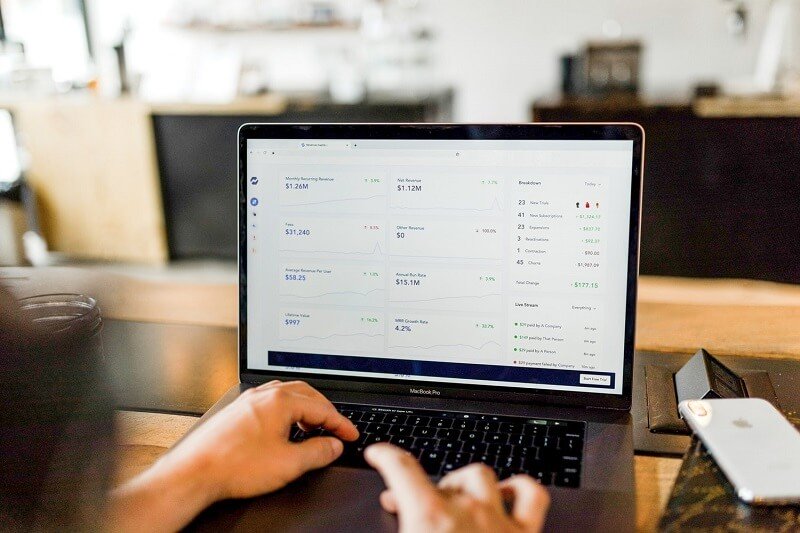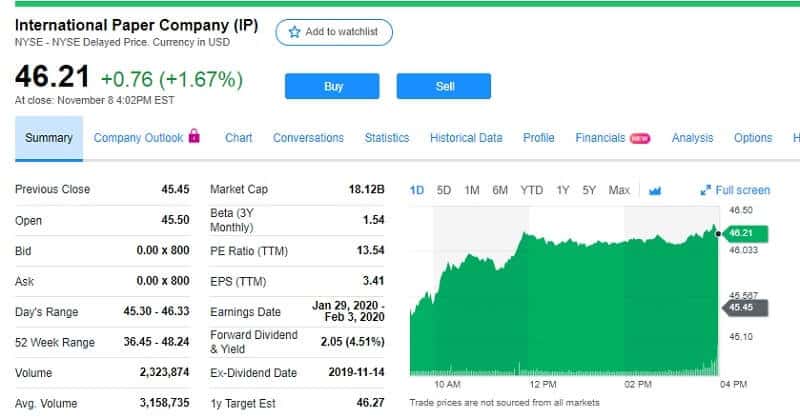
Defensive stocks provide dividends and stable earnings but the low volatility may cause fewer gains during bull markets.
By Guy Avtalyon
Several days ago, the website U.S.News posted an article about defensive stocks. As always, great and concrete suggestions. You can find their suggestions with an explanation of why the proposed defensive stocks are best picks for this June.
Here is one quotation about these stocks.
This might mean this kind of stock is less risky than most of the stocks in the market.
Further, in the same article, you’ll find a short description of what criteria investors should use when picking defensive stocks. For example, market capitalizations should be above $50 billion, such companies should have at least a 10-year track of continuous paying dividends, etc. All is followed by the list of these stocks that look like the best choice for June this year.
That simply imposed the topic, what are these stocks. Why buy them? How to choose? Where to look for them?
What are defensive stocks?
A long time ago it would be very easy to answer. You could be easily trapped listening to some financial experts saying how defensive stocks are boring investments. Moreover, you could hear they are too conservative. It might be true, even today. These stocks come into utilities, healthcare, and staples sectors. Well, one could think: Yeah, these sectors are not excited, not at all, so why should I invest there. We would like to ask you something. Would you like to invest in some company that generates steady cash flow, pays dividends regularly? Yes? We didn’t expect any other answer. Would you be surprised if we tell you that, for example, tobacco companies were viewed as defensive stocks?
But recently, investors changed their views of what these stocks are. Today, you can see that some technology companies are considered defensive stocks. Even if the definition is changed, the purpose isn’t, these stocks still have to play well during the recession. Nevertheless, these stocks have, as it always was, to provide stable earnings and regular dividends no matter what condition is the overall market. Period!
Are the defensive stocks less risky?
Since there is a constant demand for such companies’ products, these stocks seem much more steady and strong during many different aspects of the business cycle.
And here is the confusing part for some investors, especially if they are beginners. They aren’t the same as defense stocks. Do you know what we mean? Defense stocks are stocks of the companies that are producing munition, guns, war jets, etc.
Nowadays, companies with stable earnings growth, but also with innovative goods, pricing strength, are recognized as defensive stocks. Don’t be surprised if they can stir the waters. If we consider cash flow and the company’s power, nowadays Alphabet could be such a company, for example.
How to recognize defensive stocks
When uncertain time in the market comes everyone would like to protect the investment portfolio, the capital invested. Especially if it is connected to high volatility. Investors are looking for stable investments during such rough times. They would like, for sure, to increase their exposure to these stocks. For example, giants like Coca-Cola are recognized as defensive stocks. Non-cyclical stocks are recognized as defensive stocks also.
These companies have stable performances and the ability to overcome weak economic circumstances. They are also paying dividends. That might be a good reason to choose them primarily because dividends can mitigate the influence of the stock’s price dropping. These companies will rarely go bankrupt during the market downturn.
When things in the stock market get insecure, why would you like to own any stock? Honestly, you could find more safe places out there to invest in. The answer is profit. Defensive stocks provide a higher dividend yield than you can get with safe-havens. For example, Treasury bills will never provide you such an amount in interest rate. Moreover, defensive stocks mitigate investors’ fears because they aren’t as risky as other stocks. Take a look at what investment managers do when uncertain economic times come. They are moving to defensive stocks.
Better isn’t always the best
Defensive stocks are better performers than the overall market during recessions, for example. But nothing is so perfect even these stocks. Due to their low beta, when everything is blooming in the market, they could perform below the market. Less risk, less profit, that’s it.
For example, suppose a stock has a beta of 0,5 and the market falls for 2% in one week. Not a big deal, you’ll lose 1% of your investment. But what if we have the opposite situation and the price increases 2% in one week? Well, the defensive stock with a beta of 0,5 will increase by only 1%.
Beta shows the stock’s vulnerability or risk. Defensive stocks have beta under 1 which means they are less volatile. A conservative investor, who is, by default, with less risk-tolerance type, will choose defensive stocks that will deliver stable returns.
Advantages and disadvantages of Defensive stocks
They are often suitable for long-term investors because they are less risky than other stocks. These stocks together have a higher Sharpe ratio than the entire stock market. With less risk involved, you could beat the market. What else we need to understand is that defensive stocks are better investment choices than other stocks.
But there are some disadvantages also.
The low volatility of these stocks is one of them. This means smaller gains when the market is bullish. That could be the reason why some investors if not many, don’t like defensive stocks. These stocks usually cannot outperform the market in such a period. So, when investors need them most to profit more, they could betray them. There is one interesting thing about defensive stocks. When the market downturn is finished, some investors move to these stocks, but the truth is they had to do that earlier. After the market downturn is too late. The only thing that investors could catch is a lower rate of return. Think ahead of these stocks.
Why should you choose to invest in them?
For example, you don’t have a decent knowledge of the market condition. Also, if you are the risk-averse type of investor. Seeking for dividend-paying stocks is one of the reasons because these stocks provide regular dividends. Additionally, defensive stocks are a great choice when the markets are volatile.
These stocks managed to perform well even during the recessions. There are some goods that people will always need no matter what the economic situation is. For example, electricity, soap, or gas, everyone would need gas or soap even if the apocalypse is coming.
To summarize, defensive stocks have beta lower than 1, they are less volatile, they provide regular dividends. The main drawback is that they usually couldn’t generate high returns. But during the recession, they are excellent as protection for your other investments. Beta indicates the stock’s vulnerability or risk factor. This kind of stock has beta lesser than 1 which implies that they are less volatile. A conservative investor who is afraid of taking risks can invest in defensive stocks that will give stable returns.
These stocks are also recognized as non-cyclical stocks because they are not deeply associated with the business cycle. Here are a few types of defensive stocks. Such stocks are utilities, consumer staples, healthcare, gas, electricity, pharmaceuticals.









